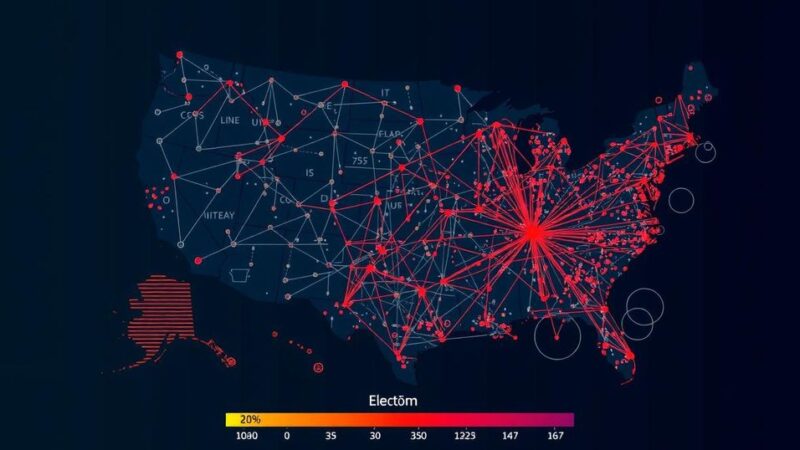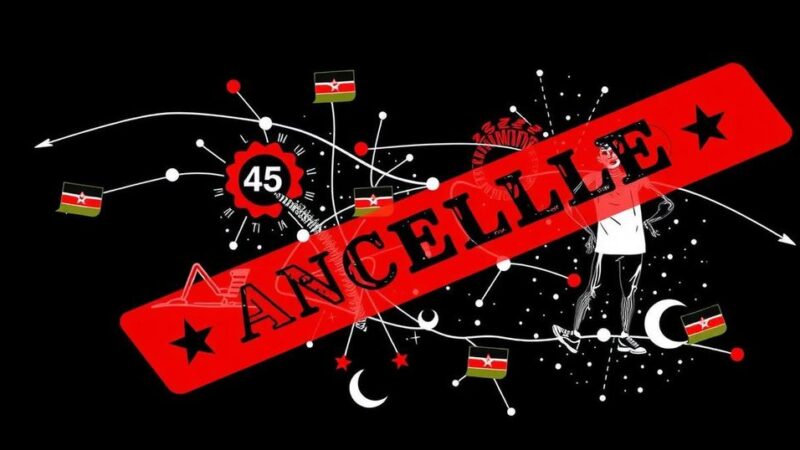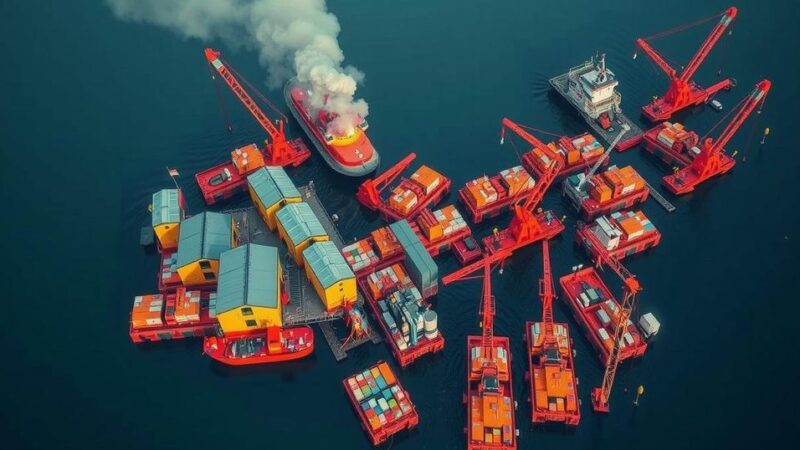Glencore Plc’s copper mine in the Democratic Republic of Congo is embroiled in a dispute with local tax authorities, who allege that the company owes €800 million in royalties. The tax agency’s actions, including freezing bank accounts and sealing a warehouse, have not disrupted production, which is set to continue in 2023. The dispute highlights regulatory challenges in the mining sector in the region.
A copper mine owned by Glencore Plc in the Democratic Republic of Congo is currently engaged in a dispute over royalties with local tax authorities. According to sources familiar with the matter, the Directorate General of Taxes and Duties (DGRAD), the relevant government body, contends that Kamoto Copper Company owes approximately €800 million ($894 million) to the Congolese government. In response to the allegations, local bank accounts of Kamoto were frozen earlier in the year, and recently, tax agents temporarily sealed off a warehouse where metals were being stored, although it was reopened the following day, permitting operations to resume. This mine, in which Glencore holds a 75% stake, is among the largest in the country, with plans to export 200,000 tons of copper and 16,000 tons of cobalt in 2023. Despite the ongoing royalty dispute, production has not been disrupted; the mine reported output of 89,000 tons of copper and 11,700 tons of cobalt in the first half of the year. A Glencore spokesperson declined to elaborate on the dispute, and the finance ministry, which oversees DGRAD, did not provide an immediate comment. Notably, tax and royalty contributions from the Kamoto Copper Company between 2021 and 2023 amounted to $2.3 billion. The ongoing dispute appears to stem from unresolved negotiations between Glencore and tax officials, leading the latter to restrict access to financial resources and physical assets to compel a resolution.
The Democratic Republic of Congo is a significant player in the global copper and cobalt markets, recently surpassing Peru to become the world’s second-largest producer of copper. The country is also a principal source of cobalt, which is crucial for the green-energy sector. The royalties and tax disputes such as the one involving Glencore’s Kamoto Copper Company emphasize the complexities and regulatory challenges encountered by mining operations in the region. Glencore’s business in the Congo represents a substantial part of its portfolio, and disputes like these can impact the broader investment climate, as they might deter potential foreign investment amid concerns over regulatory stability and tax obligations.
The ongoing €800 million royalty dispute between Glencore’s Kamoto Copper Company and the Congolese tax authorities underscores the complexities within the mining sector in the Democratic Republic of Congo. While production remains unaffected for now, the situation reflects the intricate relationship between mining companies and local governments, particularly in resource-rich countries. The outcome of this dispute will likely have implications not only for Glencore but also for the regulatory landscape around mining operations in the Congo.
Original Source: financialpost.com






